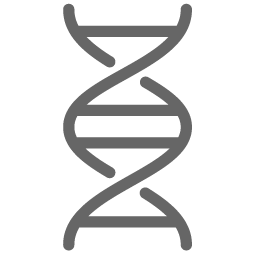Genetic counselling and testing – Referral
In accordance with eviQ guidelines, patients suspected of having high familial or genetic cancer risk should be referred to a family cancer clinic for genetic counselling and genetic testing as appropriate.
Women at high risk for familial breast cancer syndromes should be referred for genetic counselling in accordance with clinical guidelines recommended by the US Preventive Services Task Force. Criteria to recommend referral include the following: Ashkenazi Jewish heritage; history of ovarian cancer at any age in the patient or any first- or second-degree relatives; any first-degree relative with a history of breast cancer diagnosed before the age of 50 yr; two or more first- or second-degree relatives diagnosed with breast cancer at any age; patient or relative with diagnosis of bilateral breast
It is recommended that primary care clinicians (i) should assess the patient’s cancer family history [LoE 2A – NCCN Guidelines]; and (ii) should offer genetic counselling if potential hereditary risk factors are suspected (e.g., women with a strong family history of cancer [breast, colon, endometrial] or age 60 y or younger with triple-negative breast cancer.
Appropriate to offer genetic counselling to women with a high familial risk at or around the time they are diagnosed, with a view to genetic testing to inform decision-making about treatment
Useful Links
How this guidance was developed
This recommendation was adapted from two source guidelines: the ASCO 2013 (US) and the ACS/ASCO 2016 guidelines (US). The ASCO (2016) source recommendation is based on a systematic review of the evidence conducted in April 2015 and the ASCO (2013) source recommendation is based on a systematic review of the evidence conducted in June 2012. Neither were graded by the source guideline authors. The source recommendations were merged and then separated (see recommendation 'Genetic risk assessment'). Reference to genetic counselling and testing was included, and the term ‘family cancer clinics’ was used to improve applicability to the Australian health care context.
This recommendation aligns with the 2017 Cancer Australia Statement – Influencing best practice in breast cancer: Practice 1.
Genetic counselling and testing – Referral
In accordance with eviQ guidelines, patients suspected of having high familial or genetic cancer risk should be referred to a family cancer clinic for genetic counselling and genetic testing as appropriate.
This recommendation was adapted from two source guidelines: the ASCO 2013 (US) and the ACS/ASCO 2016 guidelines (US). The ASCO (2016) source recommendation is based on a systematic review of the evidence conducted in April 2015 and the ASCO (2013) source recommendation is based on a systematic review of the evidence conducted in June 2012. Neither were graded by the source guideline authors. The source recommendations were merged and then separated (see recommendation 'Genetic risk assessment'). Reference to genetic counselling and testing was included, and the term ‘family cancer clinics’ was used to improve applicability to the Australian health care context.
This recommendation aligns with the 2017 Cancer Australia Statement – Influencing best practice in breast cancer: Practice 1.


